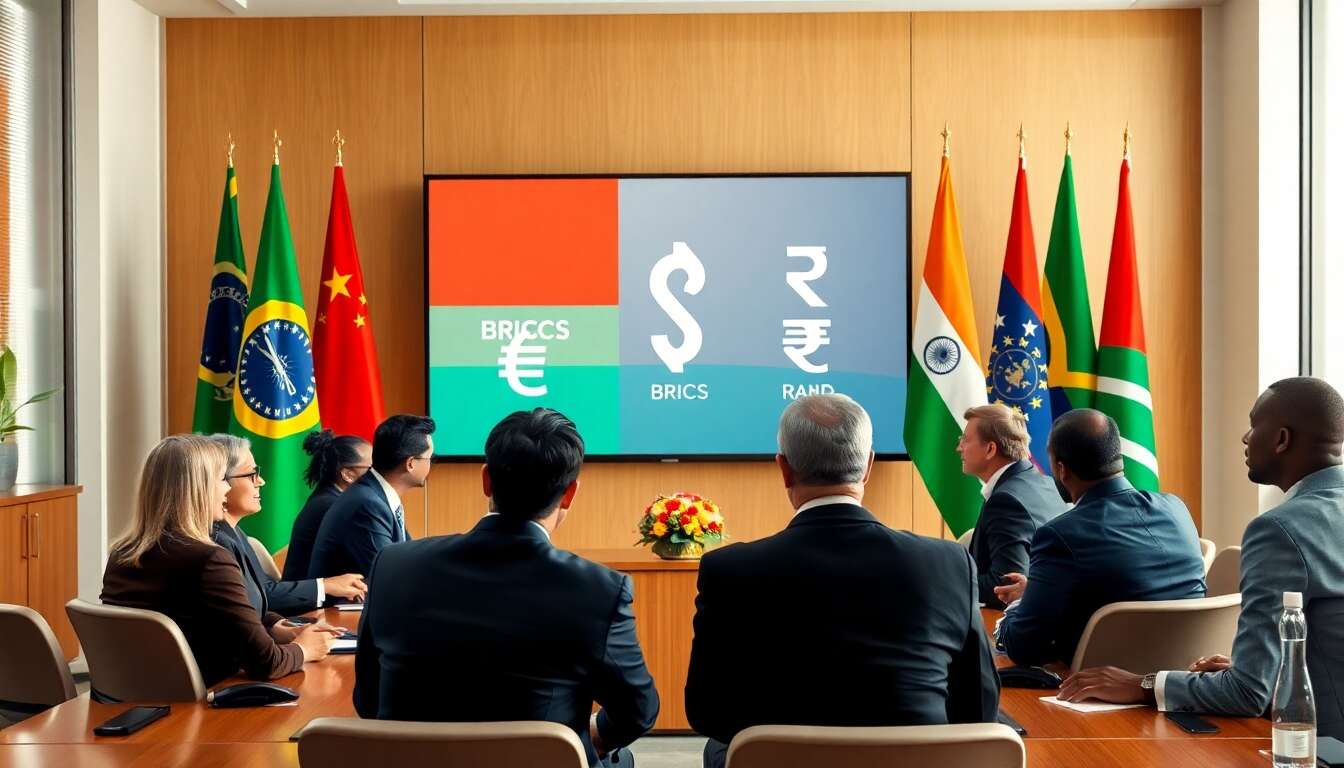The BRICS group, comprising Brazil, Russia, India, China, and South Africa, is gaining attention with its audacious steps toward creating a new common currency. This isn’t just a rumor anymore; the initiative could send shockwaves through the global economy, directly impacting the U.S. dollar and shaking up the gold market.
Understanding the Rise of the BRICS Currency

Historical Context and Motivation
The BRICS was founded on June 16, 2009, to foster mutual development and economic cooperation. As representatives of significant emerging economies, the BRICS nations aim to assert their interests on the global stage. This new currency marks a pivotal shift in how these countries view their economic futures and global influence.
Goals of the BRICS Currency
The BRICS countries are working toward a currency that may challenge the dominant U.S. dollar, which accounts for approximately 90% of currency exchanges. With 20% of oil trades happening outside the dollar realm as of 2023, this currency movement underscores a mounting interest in monetary alternatives.
With this foundation, the potential impacts of a new BRICS currency could be far-reaching and profound, touching everything from the status of the U.S. dollar to the perceived value of gold.
The Implications of a New BRICS Currency on the U.S. Dollar
A Threat to Dollar Dominance
The creation of a BRICS currency could severely undermine the dollar’s supreme status by reducing global reliance on it. A weakened demand for the U.S. dollar would have ripple effects across various economic sectors, potentially destabilizing markets dependent on it.
Global Economic Shift
By encouraging a shift toward their own currencies or a new BRICS standard, these nations could reshape how international trade is conducted. This scenario prompts questions about long-term global economic stability and the position of the U.S. in a changing financial landscape.
As we consider these shifts, we must also ponder how traditional assets like gold will fare in this evolving currency environment.
How Gold Might React to the BRICS Currency
Gold’s Traditional Role as a Safe Haven
Historically, gold has served as a safe haven for investors during times of economic uncertainty. The introduction of a BRICS currency could lead to fluctuations in gold’s value, affecting its role and allure in international trade.
Potential for Valuation Changes
The emergence of a new global currency might cause investors to reassess gold’s place in a diversified portfolio. If the BRICS currency gains traction, the relative stability and worth of gold could face challenges, complicating its traditional safe-haven status.
With gold’s uncertain role, the broader economic narrative shifts toward examining whether we are on the brink of a new global economic order.
BRICS: Toward a New Global Economic Order ?

Challenges to Western Economic Models
The BRICS initiative poses a direct challenge to traditional Western economic models. By advocating for a collective power backed by a shared currency, the BRICS nations might redefine international economic interactions and balance of power.
Potential Impacts
| Aspect | Impact |
|---|---|
| International Trade | Potential shift towards BRICS currency |
| Geopolitical Influence | Increased influence of BRICS nations |
While the potential for a new world order looms large, internal dynamics within the BRICS countries could shape the actualization of this ambitious currency plan.
Differences Among BRICS Members on a Common Currency
Internal Dynamics and Differing Economies
Despite their collective ambitions, BRICS members have distinct economic structures and priorities that might hinder the seamless integration of a shared currency. Disparate levels of economic development and political objectives could pose significant challenges.
Finding Common Ground
To move forward, BRICS nations must reconcile differences and create a unified economic vision that aligns with all member interests. Overcoming these internal rifts is crucial for the successful launch and acceptance of their common currency.
Among the BRICS members, Brazil’s localized strategies provide an insightful angle into this multifaceted approach toward economic integration.
Brazil and Its Local Payment Strategy Against the BRICS Currency

Brazil’s Economic Approach
Brazil is actively developing its local payment systems to bolster its economic resilience in the face of a potential BRICS currency. By focusing on internal growth and stability, Brazil aims to shield itself from any unforeseeable disruptions.
Complementing BRICS Initiatives
- Enhancing local currency use
- Strengthening domestic financial infrastructures
- Balancing regional economic policies with BRICS objectives
Brazil’s strategic moves spotlight individual efforts within the BRICS to accommodate new dynamics while anticipating global financial changes, even if the U.S. financial standing is questioned.
The Potential Impact of a U.S. Debt Default on BRICS
Global Economic Shockwaves
A U.S. debt default could send shockwaves throughout the global economy, and BRICS countries may both face challenges and find opportunities amidst such turmoil. The stability of the dollar would be directly at risk, compelling BRICS to contemplate adjustments to their currency strategies.
Bracing for Impact
- Strengthening financial cooperation within BRICS
- Developing crisis response strategies
- Enhancing economic self-sufficiency
Witnessing the interplay between U.S. fiscal policy and BRICS’ strategic decisions provides a compelling glimpse into the broader impacts of the proposed BRICS currency.
As these developments unfold, the proposed BRICS currency stands as a potential game-changer in reshaping the global financial landscape. If successful, this audacious move could redefine economic power balances and establish a new global monetary influence undeniably worth watching. The conversations around this initiative will remain crucial for financial analysts and global investors alike, eager to understand the shifts in economic momentum and geopolitical strategy.



